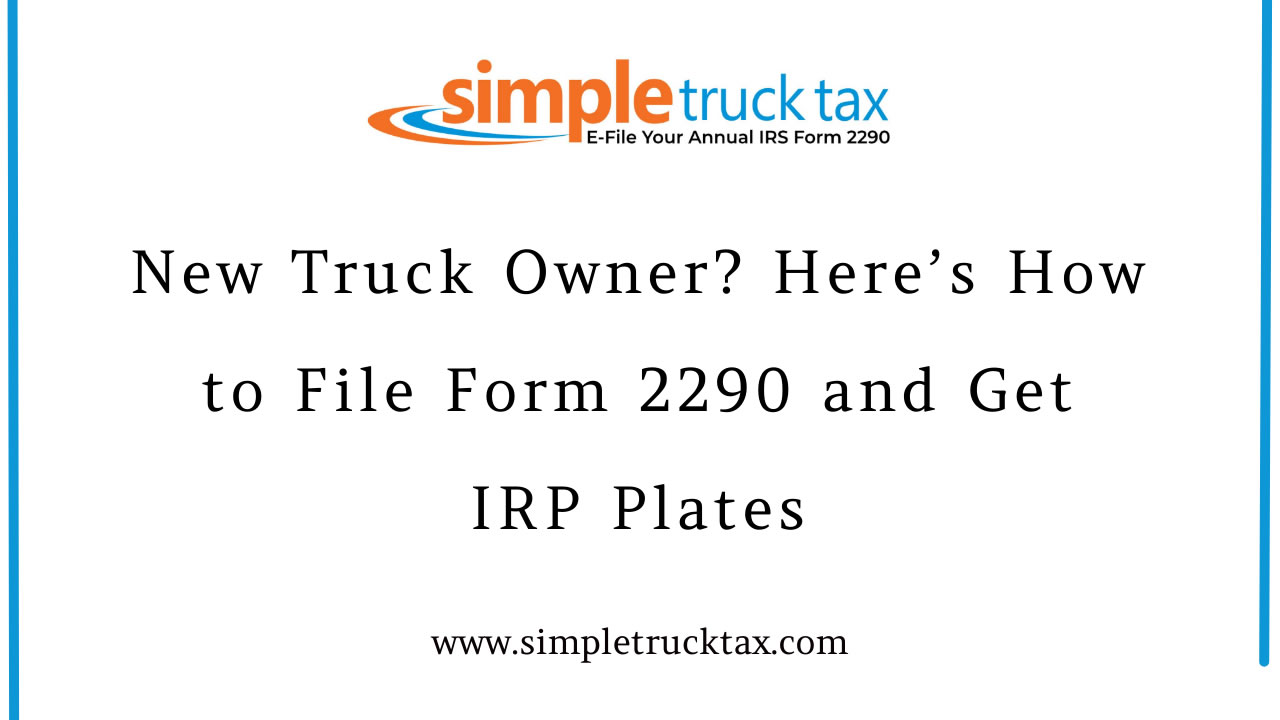
New Truck Owner? Here’s How to File Form 2290 and Get IRP Plates
Being a new truck owner is exciting, but it also comes with responsibility, particularly when it comes to compliance. Getting IRP (International Registration Plan) plates and submitting IRS Form 2290 are the first and most crucial things you should do.
It is illegal to drive a heavy-duty vehicle over state lines without these documents. Here's a detailed guide to help you get things off to a good start.
Step 1: Understand the Content of Form 2290
Vehicles weighing 55,000 pounds or more must submit Form 2290 to the IRS in order to pay the Heavy Vehicle Use Tax (HVUT). July 1st marks the beginning of the tax year, which concludes on June 30th. The form must be turned in by the last day of the month after the month in which your truck was used for the first time.
For example, you must register as a new truck owner by the end of September if you begin operating your vehicle in August.
Step 2: Gather Information and Submit Form 2290 Online
The following information will be needed: the vehicle's weight, the employer identification number (EIN), and the vehicle's VIN. Using the services of an IRS-authorized e-filing provider is the fastest method of filing. You will receive a stamped Schedule 1 as your official proof of payment after the e-filing process is complete and your money has been received.
Step 3: Present Your First Schedule 1 for the Pickup of Your IRP Plates
You can lawfully drive your truck across multiple states with an International Registration Plan (IRP) plate. Your Schedule 1 from Form 2290 is a crucial document for submitting an application for the plates to your state IRP office or local Department of Motor Vehicles (DMV). With this type of IRP registration, you can avoid increased by-state fees by only paying for the miles the truck has driven in each participating jurisdiction.
Step 4: Use Annual Renewals to Get Ready for the Upcoming Year
Your Form 2290 and IRP plates need to be renewed every year in order to be legally roadworthy. Any missed deadlines could result in fines, economic disruptions, or possibly the complete cessation of vehicle use. For Form 2290, it is advised to keep July in mind. To find out the precise dates for plate renewal, contact your state's IRP office.
By doing this, you will be able to schedule your business activities in advance and prevent expensive disruptions. Nonetheless, if you feel that doing such tasks is too difficult and that you are unable to handle them alone, consider contacting a transportation compliance specialist.
These individuals are well-versed in the intricacies of industry standards and have a plan in place to ensure year-round compliance, which allows the document handling process to continue operating smoothly.
They can guarantee that you submit correct information, stay error-free, and maintain compliance all year long. In addition to keeping you inside the law, timely license renewals and tax completion raise your reputation as a conscientious vehicle owner.